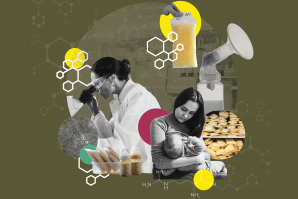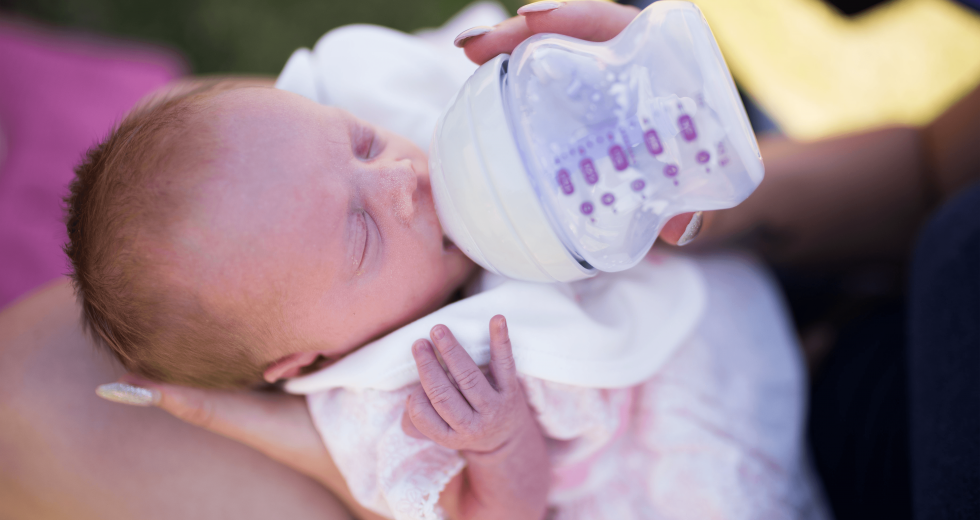Infinant Health, formerly Evolve Biosystems, was formed after UC Davis researchers identified a bacterium in breast milk (B. infantis) that helps infants digest the complex carbohydrates in milk and protects against infectious diseases, guides immune development and nourishes the baby’s microbiome. The company’s probiotic products contain this bacterium, which some infants lack in sufficient amounts. But in recent months, Infinant Health has come under fire after the death of a preterm infant has been linked to its probiotic product.
The FDA issued a warning in September to hospitals, advising them against administering Evivo with MCT Oil, the product which contains the live bacterium B. infantis. Genomic sequencing showed a genetic match between the bacteria that caused sepsis in the infant and the bacteria found in a probiotic, according to the FDA letter.
The baby, who weighed less than 1,000 grams, was given this probiotic as part of in-hospital care and “subsequently died,” the letter says. As the investigation continues, the FDA cautions that microorganisms in probiotics reportedly have caused bacteremia or fungemia in preterm infants or babies with very low birth weights.
The FDA also references a 2021 report from the American Academy of Pediatrics, which states, “Given the lack of FDA-regulated pharmaceutical-grade products in the United States, conflicting data on safety and efficacy, and potential for harm in a highly vulnerable population, current evidence does not support the routine, universal administration of probiotics to preterm infants, particularly those with a birth weight of <1000 g.”
This is a complex issue, and the hard-line stance of the FDA has left some neonatologists baffled. It is not clear that the probiotic caused the death of the baby; the gut of a baby less than 1,000 grams is very susceptible to migration of bacteria into blood. The big question is whether every bacterium in blood causes sepsis, a bloodborne infection that can cause death.
The agency should “evaluate the benefits, as well as the risks, of an intervention” before issuing guidance, wrote Keith J. Barrington, a neonatologist and clinical researcher at Sainte Justine University Health Center in Montreal, on his blog Neonatal Research. The FDA letter will probably “increase mortality among very preterm babies,” he added.
“There is little in neonatology that is as effective, as well investigated, or as safe as probiotics, in studies with 25 thousand babies, a reduction of the risk of death using the most effective combination by 30 percent is hugely important,” Barrington writes. “Probiotics are, by any measure that you can imagine, incredibly safe.”
While the agency acknowledges that probiotics are sold to treat or prevent diseases or conditions in infants, the letter emphasizes that “FDA has not approved any probiotic product for use as a drug or biological product” in infants.
“Healthcare providers should be aware that these products have not undergone the FDA’s rigorous premarket review evaluation for safety and effectiveness, nor have they been evaluated for compliance with the agency’s rigorous manufacturing and testing standards for drugs and biological products, including testing for extraneous organisms,” the letter says.
Infinant Health has voluntarily recalled and discontinued its Evivo MCT Oil product, which was sold for use only by healthcare professionals in a hospital setting, according to an official spokesperson for the company. The company is cooperating with the FDA in its investigation.
The Evivo powder product, which is not the subject of the FDA’s investigation and has not been recalled, is available on the commercial market. Classified as a medical food and regulated accordingly by the FDA, the powder product has “shown to offer significant nutritional benefits to full-term infants through the gut microbiome,” the spokesperson says.
“At Infinant Health we are committed to safety and ensuring the quality of our products,” says the spokesperson. “Our company, made up of distinguished scientists, clinicians, and parents, stands behind the safety and quality of our products for full-term infants.”
Recommended For You

Beyond the Bottle
UC Davis is a hub for breast milk science and innovation
As a chemist of food science, J. Bruce German was accustomed to observing the tiniest things: protein particles, bacteria, mucin layers and much more invisible to the naked eye. But nothing prepared him for his first experience in the neonatal intensive care unit at UC Davis.

Startup of the Month: BCD Bioscience
Young scientist develops method to revolutionize fiber
BCD Bioscience wants to help adults benefit from essential carbohydrates that naturally occur in breast milk.

Startup of the Month: Matrubials
UC Davis spinoff finds big potential in breast milk
Breast milk has antibiotic-like health benefits? It sure does. Matrubials, a startup out of UC Davis, is developing products that use breast milk components to treat bacterial infections.

Startup of the Month: TurtleTree
Business grows cells to create milk and milk ingredients
Milk may do the body good, as the 1980s campaign stated, but Fengru Lin, cofounder and CEO of TurtleTree, believes milk production without cows could do the planet even better.



